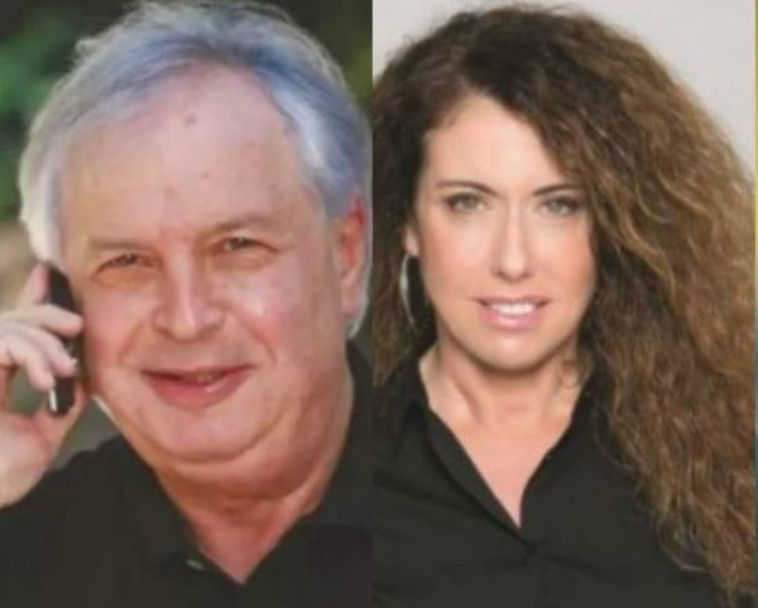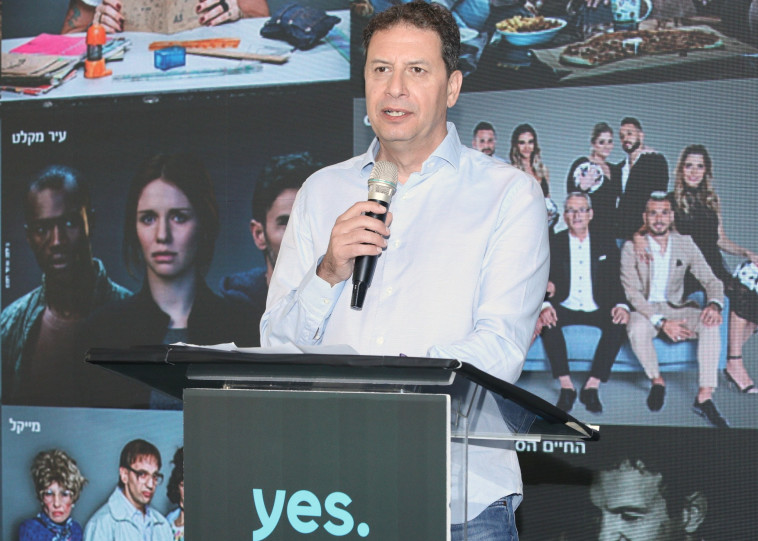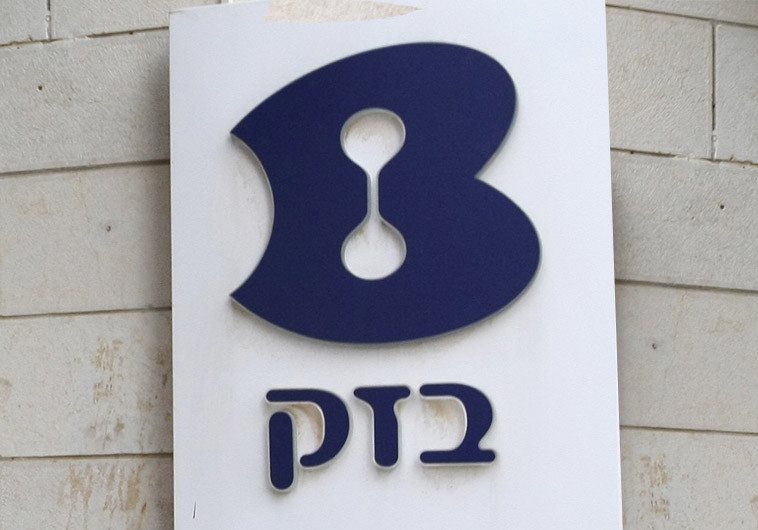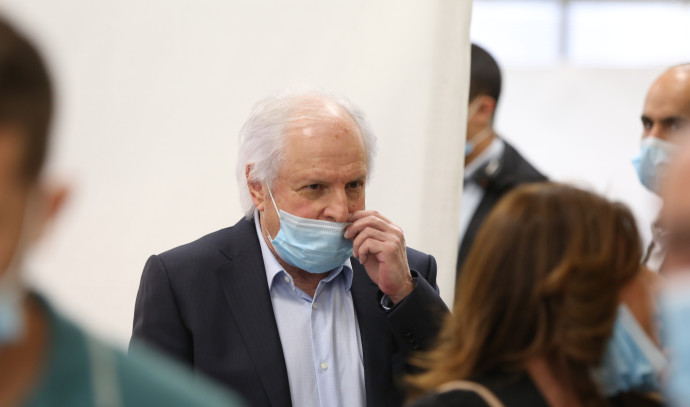The Tax and Economics Prosecutor’s Office filed an indictment today (Wednesday) in the Tel Aviv District Court against Shaul Alovich and other senior members of the former Bezeq-Yes group. Elovich, who was the controlling owner of Bezeq and chairman of the company’s board, as well as senior executives in the group and the former Yes company (Or Elovich, Amikam Schorer, Linor Yochelman, Ron Ayalon, and Miki Neiman) are charged with a number of different economic offenses. From the Eurocom group, which was controlled by Elovich.
The indictment attributes to the defendants offenses of receiving anything fraudulently in aggravated circumstances, fraud and breach of trust in the corporation, and reporting offenses under the Securities Act. In addition, the indictment relates to two cases: fraud in relation to the payment of the consideration for the acquisition of Yes shares by Bezeq, and fraud in relation to the conduct of the independent committees set up by Bezeq to examine transactions of the company in which the controlling shareholder Elowitz had a personal interest.
Netanyahu in court. Photo: Reuters (Archive)
Meanwhile, the State Attorney’s Office announced the closure of the investigation files of suspects investigated in the so-called 4,000 case and in the Bezeq case. In case 4,000, it was decided to close the case in the case of Zeev Rubinstein and media consultant Eli Kamir, after their prosecution was considered but the hearing claims in their case were accepted. It was also decided to close the investigation file in the case of Eitan Tzafrir, former chief of staff of the Ministry of Communications; Adi Kahan, who was the assistant director general of the Ministry of Communications; Sharon Fleischer, who was the deputy director general of regulation at Bezeq; Or Elovich and Amikam Shorer, who were Bezeq officials. As stated, an indictment was filed against Or Elovich and Shorer in the Bezeq case.
The Tax and Economics Attorney’s Office also entered into a conditional termination arrangement under the Securities Law with Stella Handler, who was Bezeq’s CEO. A position in a corporation is reported for a period of nine months. This is in addition to a period of more than two years in which she has not served as an office bearer since the outbreak of the investigation in the 4000 case.
- Are you afraid of the vaccine for Corona? These are the things you must know Click for details
 Stella Handler and Shaul Alovich, Archive (Photo: Flash 90)
Stella Handler and Shaul Alovich, Archive (Photo: Flash 90)In addition, the State Attorney’s Office informed Bezeq, Walla and companies from the Eurocom Group that the Attorney General is considering prosecuting them on suspicion in the 4,000 case. The corporations are suspected of bribery, money laundering and reporting offenses, by virtue of Elovich’s actions and criminal thinking, of which he was an officer. It will be recalled that Elovich is accused of bribing Prime Minister Benjamin Netanyahu through an unusual response by the Walla website to the demands of Netanyahu and his family, in exchange for government actions that benefited Elovich’s business and Bezeq.
The State Attorney’s Office also informed Yedioth Ahronoth Ltd. that the Attorney General is considering prosecuting her on suspicion of the 2,000 case. The change in coverage in the Yedioth Ahronoth newspaper and on the Ynet website, in exchange for legislative measures that would impose restrictions on the main competing newspaper, Israel Today.
“The Mandelblit understands that a 4,000-year-old is dying and is trying to perform artificial resuscitation through a ridiculous bluff. It is clear to everyone that Mandelblit does not intend to prosecute the corporations and that the only reason for his announcement is an attempt to divert attention from selective enforcement against the prime minister.”
Shaul Alovich’s lawyer, attorney Jacques Chen, said in response to the indictment: “The filing of the indictment at the time the trial is being held in the Jerusalem District Court reflects the harsh treatment Mr. Elowitz is receiving. We will continue to fight for his innocence out of confidence in his justice and in the fact that justice will be done by the court. “
Or Elovich’s attorney, Adv. Dror Matityahu, responded: “This morning we received an official announcement from the State Attorney’s Office that it had decided to close the investigation file in the main case in which Or Elovich was investigated, Case 4000, and to refrain from prosecuting him. The decision to file an indictment is secondary. “Basically, since there was no flaw in Or Elovich’s conduct and there is no basis for the unfounded accusation attributed to him. We are confident that the court will decide in this way.”
Adv. Iris Niv Sabag and Adv. Dafna Steinberg from the law firm Sheinman-Negev-Niv, representing Ron Ayalon, responded: “” Ron Ayalon acted in his position as CEO of Yes in good faith, in a matter-of-fact, professional and legitimate manner, with only the best interests of the company in mind. The indictment deals with a transaction to which Ron Ayalon had no connection, which was made between companies in which he was not an officer, and according to the prosecution in the indictment he did not derive any benefit from it. That they will lead to the determination that he did not commit an offense. “
First case: fraud in the transaction of purchasing Yes shares
In June 2015, a transaction was approved in which Bezeq acquired all the shares in Yes from the Eurocom Group. Since Elowitz was the controlling shareholder in Bezeq and Eurocom, the transaction was conducted by Bezeq as a transaction in which the controlling shareholder has a personal interest. According to the terms of the transaction, Bezeq paid Eurocom cash consideration in the amount of NIS 680 million, and it was determined that as long as certain conditions are met, Bezeq will pay Eurocom additional amounts. Among other things, the agreement stipulated that an additional amount of up to NIS 170 million will be paid as Yes’ free cash flow between the years 2017-2015 reaches a certain threshold. The agreement also stipulates that Eurocom will be entitled to receive advances at the expense of the contingent consideration as long as Yes’ free cash flow reaches certain levels in each of the transaction years. Under the agreement, amounts resulting from a change in Yes’ financial policy during the years of the transaction were to be deducted from Yes’s free cash flow calculation during the years of the transaction.
 Ron Ayalon, CEO of YES (Photo: courtesy of yes)
Ron Ayalon, CEO of YES (Photo: courtesy of yes)According to the indictment, Elovich worked together with Ron Ayalon, who was the CEO of Yes, and Mickey Neiman, who was the company’s CFO, to artificially maximize Yes’ cash flow during the years 2017-2015. This is so that the free cash will reach the maximum threshold set in the transaction agreement. In line with Elovich’s directive, with his knowledge and as a result of the pressure he exerted, Ayalon, together with Neiman, devised a fraudulent plan for the systematic and extensive deferral of payments to suppliers that changed Yes’s financial policy and created an artificial misrepresentation of the company’s cash flow data.
As a result of the implementation of the fraudulent plan, the defendants created a false presentation, according to which Yes met the free cash flow targets set in the agreement, and also hid from Bezeq institutions that approved the advance payments to Eurocom, the existence of the fraudulent scheme. These false representations led to Elowitz fraudulently receiving a total of NIS 115 million, as part of the advances for 2015 and 2016. These false representations even led Bezeq to include a number of misleading details in its financial statements published to the public.
Second case: damage to the conduct of independent committees in Bezeq
Apart from the Bezeq-Yes transaction, in the years 2017-2016, Bezeq examined the possibility of entering into another unusual transaction with its controlling shareholder, Shaul Alovich: a contract between Yes, which was already fully owned by Bezeq at the time, and a space company. Against this background, the Bezeq Board of Directors decided in each of the two cases to establish a special, independent committee, composed of external or independent directors, and to serve as a complementary mechanism to the mandatory approval procedures in controlling transactions.
The purpose of the independent committees was to conduct an independent review of the transactions with the controlling shareholder, examining possible alternatives to them, in a way that would neutralize conflicts of interest of the controlling shareholder, Elovich and other stakeholders in the transaction, including his son, Or Elovich. The committee was also entrusted with leading the negotiations in a way that would ensure a competitive procedure that resembled a normal transaction on market terms that relies solely on material and economic considerations. Therefore, the controlling shareholders and other stakeholders were to be excluded from the negotiations about the transactions, and not be exposed to what was going on in the committee discussions.
Adv. Linor Yochelman, who was Bezeq’s secretary and in charge of the company’s internal enforcement, also served as secretary of the independent committees. Yochelman attended most of the committee’s meetings and was exposed to information presented to its members. At the board meeting where it was decided to establish the Bezeq-Yis independent committee, she presented Yochelman presented that Elowitz and the other personal stakeholders would be excluded from the work of the independent committee.
 Bezeq, illustration photography (Photo: Flash 90)
Bezeq, illustration photography (Photo: Flash 90)Notwithstanding these presentations, and contrary to her duty as secretary of the committees, Yochlman leaked to Elowitz and Or Elowitz and Amikam Shorer confidential details about the activities of the independent committees, including transmissions, confidential presentations, position papers and opinions, internal correspondence of committee members and documents to the other defendants. More.
The information provided by Yochlman had a competitive advantage for Elovich and the other defendants, and they used it, shared the information leaked to them and passed it on to each other, as well as to other parties. According to the indictment, in relation to the independent committee for the space deal, Elovich and Or Elovich even discussed with Yochlman possible courses of action, and sometimes instructed her on how to act in an attempt to influence the committee’s decisions.
The defendants concealed their involvement in the work of the independent committees from Bezeq institutions, and led Bezeq institutions to approve the Bezeq-Yis and space deal on the basis of a false presentation that the negotiation process was conducted properly and without the controlling shareholder and related parties being exposed to confidential committee discussions. In their face. This, when in practice Elovich and his associates were exposed to material information from the activities of the committees.
In addition, the defendants are charged with reporting offenses under the Securities Law in light of the fact that concealing the involvement of the controlling shareholder and other stakeholders in the conduct of the negotiations led to Bezeq including misleading details in its reports on the Bezeq-Yis independent transaction.
The indictment was filed by attorneys Amir Tabenkin, Nitzan Vulkan and Stav Ginat from the Securities Department of the Tax and Economics Prosecutor’s Office. The case was investigated by the Securities Authority’s Investigations, Intelligence and Trade Control Department.
